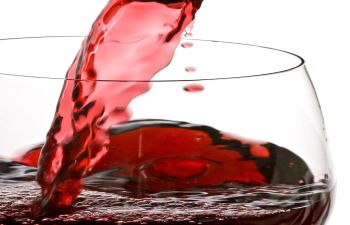Many adults enjoy the occasional alcoholic beverage. In fact, you may have rung in the New Year with your favorite wine or cocktail in hand. When it comes to alcohol consumption, you may know that moderation is best for the health of your body, but did you know that your teeth prefer you limit your intake as well? Too much alcohol can pose specific risks to your dental health.
Dehydration
According to the American Dental Association (ADA), dehydration is one of the most overlooked side effects of alcohol consumption. While you may consider dryness as simply a discomfort inside your mouth, it can actually be a major risk to your oral health. Our teeth and gums rely on saliva to rinse away food particles and bacteria as well as neutralize acids that contribute to tooth decay. A persistently dry mouth can make it difficult to speak and swallow and leave you more vulnerable to cavities.
Sugars and Oral Bacteria
Whether it wine, beer or a mixed-drink, most alcoholic beverages contain large amounts of carbohydrates or sugars. Unfortunately, these sugars serve as fuel for cavity-causing oral bacteria. As the bacteria feeds on sugars, it releases acids that soften and erode tooth enamel.
Teeth Stains
If you like red wine, you probably already know about the way it can stain your pearly whites. Dark pigments in alcoholic drinks can lead to unsightly discoloration that can be difficult to reverse. However, even white wine can contribute to enamel erosion, which can make the teeth appear dull or yellow over time.
Oral Cancer
Each year, more than 50,000 people receive a diagnosis of oral cancer. While tobacco is the number one risk factor for oral cancer, alcohol consumption is the second most common contributor. Limiting your alcohol consumption can help reduce your risk of developing a wide range of cancers, including oral cancer.
At West Hill Family Dental, we don’t expect our patients to avoid alcohol altogether. However, we do like to educate them on the negative impacts that these beverages can have on their teeth over time. Contact our clinic today to learn more about how you can enjoy your wine this year while also protecting your smile!
